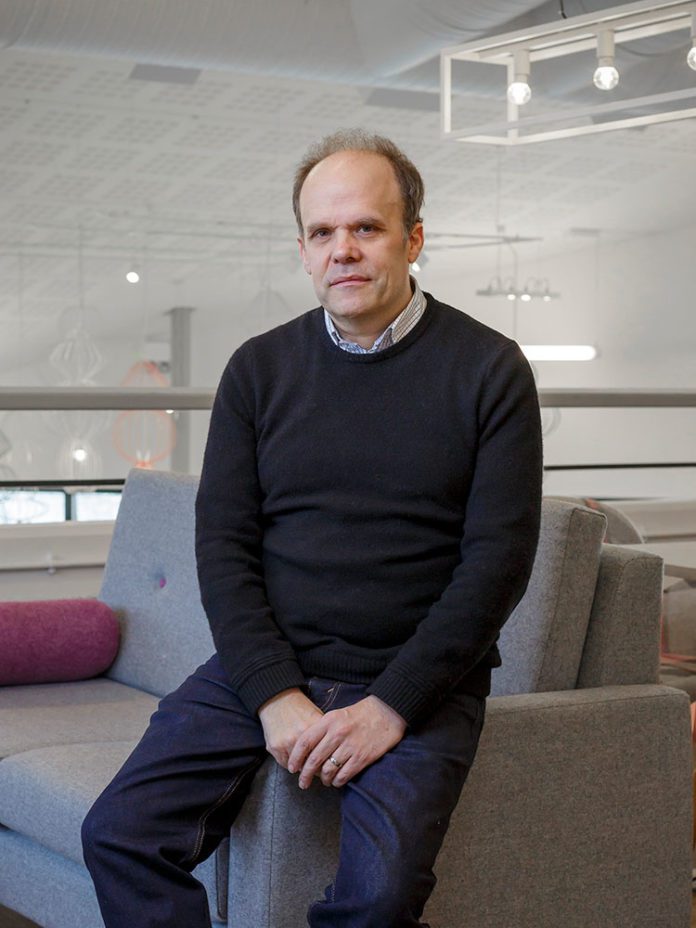It’s been a controversial start to the year for Spotify.
Musicians, including Neil Young and Joni Mitchell, asked for their music to be removed from the streaming giant after criticism that the US broadcaster Joe Rogan has helped to spread COVID misinformation on his show The Joe Rogan Experience.
Prince Harry and Meghan Markle, who have lucrative deal with Spotify, have also expressed their concerns but will continue to work with the platform.
This week, Spotify said it was working to add advisory warnings to any podcast discussing COVID-19.
Richard Berry, an expert in live programming and digital content at the University of Sunderland, discusses the evolution and impact of podcasting, and what the future holds for the platform.
Wyświetl ten post na Instagramie
Q. How has podcasting grown to become a mainstream media outlet and what impact is it having?
A. I think there are lots of reasons behind this. When podcasts first appeared it did look like they would become really popular, but interest waned after a few years and they almost disappeared and this was all about technology, as you needed to listen on an iPod (remember them?) or a computer and people soon got bored of that. This changed with 3G and Smartphones. This just made the whole process really easy and so when Apple added the Podcast app to iPhones in 2012, people started to explore it and see what was there.
In the couple of years that followed some great podcasts were started and money was invested, and it started to take off from there. The thing that drove it was all the shows were free and used open tools, so anyone could make one. The Infinite Dial study (America’s longest-running survey of digital media consumer behavior) shows that in 2006 22% of the US population had heard of podcasting. By 2021 this had risen to 78%. Their UK study puts that figure at 71%, so most people have heard of podcasting and 59% have listened to one.
As we have seen this past week there are big names in podcasting like Joe Rogan, who command huge audiences and paycheques from platforms like Spotify. Podcasts come in all different shapes and sizes and are really good at dealing with complex stories, long form interviews, niche topics, or documentaries. If you look at Chris and Rosie Ramsey, who make their podcast at home in South Shields, they are now one of the biggest podcasts in the UK and had live tours and a book deal on the back of their show. This really shows the impact that podcasts are having, as a few years ago that wouldn’t been something that you would have thought possible.
It does seem that everyone wants to have a podcast and we’re getting loads of interest here at the University, both from students who want to learn how to make them – to organisations who’re asking for our help.
Q. What does the future of podcasting look like?
A. I think it’s going to continue to grow and clearly money is going to follow that. Podcasts tend to be listened by younger people and so broadcasters like the BBC see them as a great way to connect to audiences who don’t own a radio, so this is going to be one way that lots of media groups are going to reach their audience.
The fact that podcasts can be any length you like and go out whenever you like, means that celebrities and other people see podcasting as a place they can try out ideas or be themselves, and the more of this high-profile content there is then the more people will listen. The downside to this is it’s going to be harder to find the other stuff!
The controversy around Joe Rogan also shows the role that platforms are going to play. Rogan has an exclusive contract with Spotify, which means his show isn’t in other apps. This is clearly going to be a trend, where platforms hold back content in their own apps either permanently or for short periods. This might mean we get more big names making podcasts, but not necessarily ones we can all hear. This debate also poses questions about whether platforms have a duty of responsibility over the content they distribute, especially when they’ve paid someone to be on their site.
So, I think that podcasting will definitely grow and we’ll see more star names coming in but there are also big questions about the role of big tech.
Q. Can you have a successful career in podcasting?
A. There are so many opportunities in podcasting. The most obvious is that anyone can still make a podcast. Our students make podcasts for assessments and push them out online, so anyone can listen – not just tutors. They can also start their own podcast or go to help someone with an idea.
This can be really important, as more and more places are working to grow their podcast operation or hire people to make them. This could be in a radio station or production house, but it could also be a charity or a business. A number of our graduates are already doing this.
The thing about podcasting is that can look really easy but to get it right you need a great idea and some good technical skills to make sure it sounds good!
















